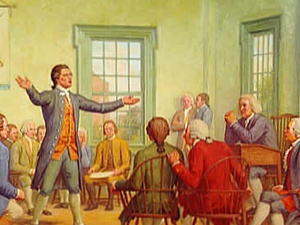Dinah, ClinkShrink, & Roy produce Shrink Rap: a blog by Psychiatrists for Psychiatrists, interested bystanders are also welcome. A place to talk; no one has to listen.
Monday, March 04, 2013
Break a Leg, Pete Earley!
Tomorrow, our blogger friend, Pete Earley, will be giving testimony to Congress about mental health and public safety. A tireless mental health advocate, author of Crazy: A Father's Search Through American's Mental Health Madness, and a fabulous writer in many genres, Mr. Earley will be one of three parents speaking. He's been asking his readers for suggestions about what to say in his 3 minutes of testimony, and ClinkShrink devoted one of her posts here to making suggestions, and Mr. Earley plans to use the input he's gotten in the written testimony he submits.
We've had a bunch of back and forth discussions on proposed gun legislation and mental illness. Mr. Earley was kind enough to put my op-ed piece from the Baltimore Sun on his blog. One of our readers, SunnyCA, said we needed a bigger audience for this, and ironically, that comment was made on the day that Mr. Earley and I were writing an editorial to submit to USA Today. If you'd like to read that article, which was published today, click HERE.
I want to wish Pete the best tomorrow. I'm sure he'll do a wonderful job, an ho, it's so tempting to suggest that when Mr. Earley testifies in Congress, we know he won't be late. I'll stop now. It's hard to keep up with ClinkShrink when it comes to puns, and I'm not sure why I even try.
Subscribe to:
Post Comments (Atom)

3 comments:
I read some of the comments on his blog, and I find the whole thing pretty depressing. It's all about how HIPAA shouldn't apply to people with serious mental illness, apparently we don't deserve any right to privacy because we're nuts. Last I checked, despite being diagnosed with a serious mental illness, I am not brain dead. How about creating an enforceable advance directive, so they cannot blame anosognosia anytime a person declines a particular treatment?
The comments seem to be more focused on taking away our rights as opposed to making more care available. I fear that Torrey's voice will be heard the loudest, with focus on force, force, force. This will drive patients away from care.
I did appreciate that Mr. Earley suggested they might want to ask people with mental illness what they think. But, it's not a good sign that they hadn't already thought of that.
I don't think this bodes well for people with mental illness.
Sorry anon, but the "P" in HIPAA is not for privacy. HIPAA also takes away privacy, and we can probably expect the next incarnation to be even worse. Look for a doc who is not a covered entity, and keep voicing your opposition.
Best to Mr. Earley.
You're right HIPAA does take away some rights to privacy. My comment is more about the relatives on Earley's blog who want to focus on taking away rights as opposed to improving access to care, improving the quality of care in psychiatric hospitals, etc.
I think much of the friction over patient care could be addressed with an enforceable psychiatric advance directive in every state. That way, I could opt out of some of the nonsense I disagree with and wouldn't have to worry about those who think like Torrey. The people who feel helped by force and/or coercion could make sure the directive addresses their wish for force if necessary, and those of us who only improve with the kinder, gentler approach could have our wishes respectd as well. Also, it should remove any liability for the physician for acting or not acting (depending upon the decisions made when teh patient was legally competent). That is the ideal situation, in my opinion.
Frankly, I think the anosognosia argument is used too often when the real problem is the poor relationships that exist between family members and/or poor relationships between patients and psychiatrists. I like the psychiatrist I have now because he is calm, respectful, and treats me like an adult. I did not care at all for the who was a paternalistic, forceful, hothead who had to get his way. I would be willing to bet that those who tend to blame anosognosia the most are those who are not very good at creating therapeutic alliances with their patients.
Post a Comment